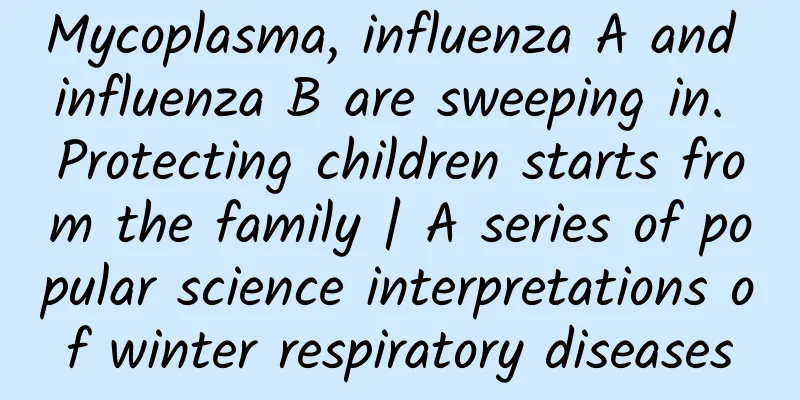My father passed on to me a "cancer susceptibility gene"

|
A big girl was admitted to the ward. "Big girl" refers to the other two or three-year-old children in the ward. She was only 13 years old, the age of a young lotus. Because she always had headaches, she went to many places and finally found the culprit - a brain tumor. She came to our hospital for surgery and the pathology report showed that it was a glioblastoma, a primary malignant tumor in the brain, and chemotherapy was needed in the future. So she was transferred to the internal medicine ward. Brain tumors, also known as central nervous system tumors, are a cold but not low-key "killer" and the most common solid tumor in children. Glioblastoma is one of them, which is "ordinary". But for this child, tracing her family history, we found that she had a younger brother who was diagnosed with "choroid plexus papillary carcinoma" and was also treated in our ward... It's strange, why do brain tumors seem to favor children in their family? Is there any familial factor? With the consent of the parents, we collected samples of the patient, his two younger brothers, and his parents for genetic testing. The results showed that the father was a carrier of the TP53 mutation gene, the mother was normal, and all three children were carriers. Combining other indicators and the child's diagnosis, in addition to glioblastoma, she also had Li-Fraumeni syndrome (LFS). The main cause of Li-Fraumeni syndrome is the TP53 gene mutation, a legendary tumor suppressor gene mutation with autosomal dominant inheritance. This is a "gift" that must be accepted or not. What is Li-Fraumeni syndrome Li-Fraumeni syndrome, first discovered in 1969, is a typical genetic tumor susceptibility syndrome, and the diseases associated with it include: sarcoma, breast cancer, adrenocortical carcinoma, leukemia, lymphoma, Wilms tumor, etc. Compared with the general population, these patients have a significant tendency to tumor susceptibility, with the characteristics of low age of first tumor onset, high tumor prevalence, common multiple tumors, and high lifetime cancer risk. I can't help but ask a question "Why" The TP53 gene is located on chromosome 17 and is a very important tumor suppressor gene in the human body. It can encode the transcription factor P53 protein. It has to be said that this P53 protein is very powerful. When one or some cells are damaged, P53 will regulate the expression of a series of tumor-related genes to block the cell cycle, induce cell repair or promote cell aging and apoptosis according to the type and degree of damage, and ultimately achieve the purpose of inhibiting the malignant proliferation of cells. To use an analogy, P53 protein is like a policeman in the human body, investigating criminal suspects, educating those who can be educated, arresting those who are stubborn, and punishing those who are really bad. Or, if the human body is compared to a car, P53 is like the brake system, slowing down and braking appropriately, slowly pressing the brake pedal and grinding for a long time, keeping the speed within a reasonable range, and driving more safely. Unfortunately, some people have TP53 gene mutations and are unable to produce normally functioning P53 protein, which is bound to lose the previous protective function and ultimately lead to the failure of the original tumor suppressor effect, or even acquire a new function that promotes tumor formation. It's true that success and failure are both due to Xiao He... Is there anything I can do to help her? The older girl has already completed surgery, and her subsequent treatment is no different from that for other glioblastomas. And, we know that the mechanism of action of chemotherapy drugs is to kill tumor cells by interfering with cell replication and proliferation. So, for patients with TP53 gene mutations, the cells damaged by chemotherapy drugs cannot undergo normal apoptosis, will this lead to poor chemotherapy effects? That’s right, patients with TP53 gene mutations often have poor chemotherapy responses. Moreover, radiotherapy is prone to induce new tumors. Therefore, in clinical practice, for breast cancer patients with TP53 gene mutations, if they are found in the early stage, surgical resection is the first choice, and no radiotherapy is given after surgery. However, since we know that the culprit is the TP53 mutant gene, can't we find a way to control this "little devil"? Unfortunately, there is currently no specific treatment for the TP53 mutation gene, and some targeted drugs are still in the clinical trial stage. Why is it so difficult to develop targeted drugs for TP53 mutation genes? In fact, as more signaling pathways for tumor occurrence and development are discovered, the development of small molecule targeted drugs targeting key links is in full swing. Some targeted drugs that can cure diseases have also been hailed as "miracle drugs", such as imatinib for the treatment of chronic myeloid leukemia and gefitinib for the treatment of non-small cell lung cancer with EGFR mutations. Generally speaking, we can divide the genes that affect tumor occurrence into two categories: oncogenes and tumor suppressor genes. Oncogenes, such as EGFR, ALK, KRAS, etc., have activating mutations that drive tumor proliferation, sounding the "rally" for tumor occurrence, and they keep on sounding, and they will never let go until they conquer the city. However, the activating mutations of oncogenes also need to follow the rules of the game, that is, only mutations at certain specific sites can lead to sustained activation, so when developing drugs, you only need to target these specific mutation sites. Just like a thick textbook, it is much easier to review if you grasp the key points of the exam. The other is tumor suppressor genes, of which the TP53 gene is a representative. In addition, there are the well-known BRAC genes (the one carried by Angelina Jolie), etc. Their daily work is to regulate cell proliferation, just like the policeman mentioned earlier. If the policeman catches a cold and dozes off one day, causing the bad guys to escape, or if he is in a bad mood because of a breakup, or if he is old and has blurred vision...many reasons may lead to monitoring errors. Back to tumor suppressor genes, they can mutate at any site and in any form. Once this mutation causes the encoded product to have reduced or lost function, it may cause tumors. It can be seen that its mutation is extremely random, and accordingly, the difficulty of developing blocking drugs against tumor suppressor genes can be imagined. Of course, scientists are not pushovers, and taking a roundabout way to save the country is not a bad idea. In the final analysis, the TP53 gene regulates the cell cycle, and the early G1 phase of replication. But we know that there are G2 phase, M phase, and so on. Therefore, if we let go of the G1 phase, we can intercept it later to achieve the goal of saving the country in a roundabout way. Currently, the drugs being tried, such as the targeted drug AZD1775 developed for the WEE1 gene, a key "accomplice" in the G2 phase downstream of the TP53 gene, have been clinically tested and confirmed to perform well in combination with chemotherapy for ovarian cancer with P53 gene mutations. However, there is still a long way to go before the new drug is launched on the market and its indications are expanded to children. Are we just going to sit there and wait for death? Rather than waiting for death, a more proactive approach may be regular and comprehensive screening to detect and treat primary tumors, second tumors, and others as early as possible. Although it may not seem as good as a head-on confrontation, research has proven that this is also meaningful. Canadian scholars have found that the 5-year survival rate of LFS patients who regularly monitor TP53 gene mutations has increased from 59.6% to 88.8%. For pediatric patients, tumor screening according to the Toronto protocol is recommended. In addition, because the risk factors for childhood tumors are difficult to fully assess, children who meet the LFS diagnosis should undergo lifelong follow-up and tumor monitoring, as well as their families. The time we spend together is more precious than the genes we inherit. Life is a wonderful journey and being a parent is a glorious trust. "My father passed on a cancer susceptibility gene to me," and he treated all three children equally, without missing a single one. This is a sad story, yes. But I actually want to comfort this father from a personal perspective, because I can imagine how upset he must be. If possible, he would definitely want to leave the best things to his children, not this mutated TP53 gene. But the formation of the embryo, the shaping of life, in the ten months in the mother's womb, the parents can do nothing at all, they can only wait and care for this little life with the best expectations. I recently read Zhou Guoping's "Baby, Baby", which is full of the old father's love for his daughter Jiujiu. It is both warm and touching to read. But people who are familiar with Zhou Guoping know that Jiujiu is not his only daughter. He had another daughter before him - Niu Niu. He also wrote a book for Niu Niu - "Niu Niu: A Father's Notes". Different from the warmth of "Baby, Baby", "Niu Niu" is about a father who guards his child who is destined to die, and the mixed feelings of love and sorrow in raising his daughter under the shadow of death, as well as his thoughts beside the cradle and grave. Soon after Niu Niu was born, she was diagnosed with a terminal illness. She lived with this terminal illness for a short one and a half years. This is the most "beautiful" and tragic story in their lives. One and a half years old, Niu Niu shook her little hand, sighed softly, stopped breathing, and left this world. Zhou Guoping, who was extremely affectionate, used his pen to record the more than 500 days and nights he spent with Niu Niu, writing down the coldness and tenderness on the paper. "Those who sow in tears will reap in songs of joy." Seven years later, when Zhou Guoping welcomed his second daughter, he happily wrote, "My daughter, you could have never come to me, but you chose me to be your father. What a trust you put in me. God gave me life, and he also gave me the honor of taking care of your life. What a grace. Facing you, I am blessed, I am happy, and I am grateful." A father has no choice about what he will pass on to his child. But he has a lot to do in how he will accompany and raise his child. Just like Zhou Guoping said: "The time I spend with my daughter is the treasure of my life." So I really want to say to this father: Come on, Dad, it is not your intention to inherit the TP53 mutation gene, but for the rest of your life, you can choose what kind of mark you leave in your child's life. Author: Li Ying, Chief Pharmacist, Beijing Children's Hospital, Capital Medical University Review expert: Liu Ying, deputy chief pharmacist, Beijing Children's Hospital, Capital Medical University |
<<: Why do opera actors wear makeup? The evolution of opera
>>: Why is leukemia called “white” blood disease?
Recommend
What happens during early pregnancy?
After pregnancy, it is best not to have sexual li...
How to restore chipped teeth?
When our teeth are chipped, have abnormal color o...
What should I do if I sweat too much during menopause?
There used to be a TV series called "Adolesc...
Is it because a woman's hands and feet are cold? It's not just that
Some people say that if female friends have cold ...
How to grow Schefflera arborvitae to make it grow luxuriantly? Reasons why Schefflera arborvitae leaves turn yellow and wither
Growing flowers seems to be a very simple thing, ...
Diagnosis and treatment of the cause of yellow liquid leucorrhea
The normal color of leucorrhea is milky white. Ma...
Don't use plastic wrap like this anymore, it's toxic, harmful and may even cause cancer! 6 things to pay attention to when choosing plastic wrap
In daily life, we often use plastic wrap to wrap ...
What is the reason for light color of menstrual period
The normal color of women's menstrual blood s...
How long should I stay in bed after an abortion?
If you get pregnant unexpectedly and are not well...
The whole process of fallopian tube iodine water angiography
Fallopian tube disease is a common gynecological ...
Penis endurance training exercises
As a man, we all hope that we can last longer. Bu...
4 months pregnant uterine contractions
When a woman is four months pregnant, in the midd...
Can a girl's Adam's apple be removed?
Most men have Adam's apples, and some women a...
What's going on if I haven't had my period for five months?
For female friends, what they are more concerned ...
The wrong numbers you've dialed in recent years: Gynecology
The wrong numbers you've called in recent yea...









